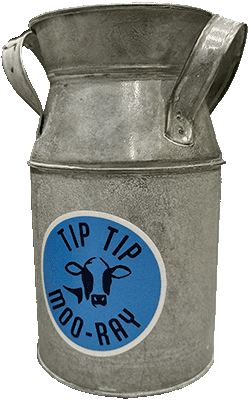The Pied Piper strategy promotes straw-man arguments that can be easily dunked on. These arguments somehow gain mass exposure, overshadowing the real concerns.
Once the false concerns are obliterated, the audience turns away and real concerns remain. If anyone brings up the real concerns, large swaths of the audience simply ignore it because “they’ve seen this one before.”
Misdirection
Years back concerns were raised that Monsanto was suing farmers. Allegedly, farmers were being sued because Monsanto seeds had blown into their fields. Since those seeds had grown into plants, somehow infringed upon Monsanto’s copyright.
Problem is: this didn’t happen.
From the Genetic Literacy Project, Does Monsanto sue farmers who save patented seeds or mistakenly grow GMOs?:
There is no documented instance of Monsanto or any other biotech seed company suing a farmer for unknowingly reusing patented seeds. Likewise, there have been no lawsuits over instances where GMO seeds blew onto a farm and germinated. However, Monsanto says it has filed 147 suits against farmers since 1997 (an average of eight per year, while Monsanto has licensing agreements with 325,000 US farmers) who have knowingly violated patent rights by saving seeds for replanting, despite being prohibited from doing so. Monsanto says only nine of those cases have gone to trial, with the company collecting more than $23 million from its targets.
Perhaps other nefarious activities are happening in the background, but we don’t have evidence of that.
Monsanto is not suing farmers or land owners who happen to have some of their seeds fly into their plots.
However, did you catch that last part?
Monsanto says it has filed 147 suits against farmers since 1997 … who have knowingly violated patent rights by saving seeds for replanting
Suing farmers for saving seeds is posed as normal, sensible and no doubt beneficial to shareholders.
Food as a subscription service
Once you’ve bought Monsanto’s seeds, you have to repurchase them again and again to continue harvesting crops. Food production essentially becomes a subscription service that the farmer must pay into all the time. You no longer own what you’ve purchased, you’ve agreed to bind yourself to their rules after the money is spent.
Once you buy Monsanto’s seeds, you get to harvest their yield just once, and only once. Then you have to buy more.
This is a radical shift from the previous thousands of years. Farmers have always kept, sorted, and selected their seeds. With this advent of seeds-as-a-subscription-service, the age old practice of personally honing your craft as a farmer becomes prohibited or at best separated from the business.
The farmer’s own will to innovation is sterilized, and the farmer is one step closer to being replaced by a robot (probably also owned by one or just a few megalithic companies).
Out of convenience, we’re brought closer to a world where all food production is controlled by a central authority. Instead of distributed networks of farmers who all produce their own food to varying degrees of value and success, it’s simply: Food Incorporated.
If that’s not a future you want to live in, you can help secure a better future by actively supporting your independent farmers. Help their businesses grow so they can survive as farmers and we’ll always have access to independent food.
Further reading on Biden’s pick for Agriculture Secretary, Tom Vilsack, and his relationship to Monsanto.




